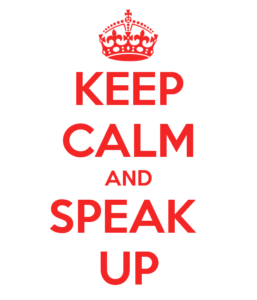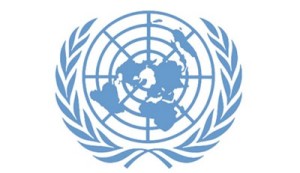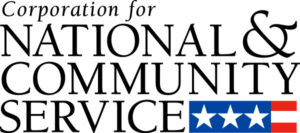 Volunteer engagement is essential to the democracy and the life, liberty and the pursuit of happiness for which my country, the USA, strives – paid staff just cannot do everything that needs to be done in this regard. Some activities are best done by volunteers – by people who aren’t being paid a wage to do certain work, who are freed from fear of being fired from a job that pays for their home, food, transportation, etc. and, therefore, able to speak more freely about what they are seeing and doing at the agency that hosts them as volunteers or in the community in which they are providing service.
Volunteer engagement is essential to the democracy and the life, liberty and the pursuit of happiness for which my country, the USA, strives – paid staff just cannot do everything that needs to be done in this regard. Some activities are best done by volunteers – by people who aren’t being paid a wage to do certain work, who are freed from fear of being fired from a job that pays for their home, food, transportation, etc. and, therefore, able to speak more freely about what they are seeing and doing at the agency that hosts them as volunteers or in the community in which they are providing service.
But volunteer engagement does not magically happen and it is also not sustainable by mere good will and passion. Effective, sustainable volunteer engagement requires knowledge and processes.
A few months ago, I finally read By the People: A History of Americans as Volunteers, a book by my long-time colleague and friend, Susan Ellis, along with Katherine Campbell. The book does a fantastic job of showing the role of volunteers in the formation of the United States of America and so much of the best parts of our way of life, from mobilizations that lead to nonprofits like Goodwill, the YWCA and the Sierra Club – efforts often lead by women – but also of showing how volunteers have played such an important role in establishing the American character, one that relishes community-driven and do-it-yourself driven efforts to address community needs and concerns. The book provides repeated examples of how volunteers seized a social issue in the USA and amplified it and addressed it, from the abolition of slavery to the health of soldiers to the civil rights movement and so many things before and after.
But this American value is under attack by the current President of the USA, and it’s overdue for everyone who cares about volunteerism to speak out.
Here are five things that have been happening regarding volunteerism in the USA, lead the Donald Trump, that every association of nonprofit organizations and every DOVIA (directors of volunteers in agencies) and other association of managers of volunteers like the Northwest Oregon Volunteer Administrators Association (NOVAA) based in Portland, Oregon, needs to be commenting on via their outreach to members, their blogs, their social media and to the press (I think consultants regarding nonprofits, particularly regarding volunteer management, need to be speaking out about these as well):
(1)
In 2017, Donald Trump appointed Carl Higbie as chief of external affairs for the federal government’s volunteer service organization, the Corporation for National Service, to direct the public image and messaging of this agency that manages millions of Americans in volunteer services like AmeriCorps and Senior Corps. Before this role, as host of the radio program “Sound of Freedom,” an Internet radio station, Higbie made comments deriding black Americans, Muslims, women, LGBT people, veterans suffering from PTSD and immigrants. Higbie resigned in January 2018 after a CNN story brought these comments to light. All of these statements were publicly available and known by HIgbie’s associates, yet he was appointed anyway.
(2)
On February 12, 2018, Donald Trump sent his official Fiscal Year 2019 Budget request to Congress. This budget proposed the elimination of the Corporation for National and Community Service in FY 2019, and provided funding for an “orderly shutdown.” This budget cut would have meant the elimination of AmeriCorps, VISTA, the Conservation Corps (the modern-day CCC) and Senior Corps. Later, because of pressure from Republican colleagues and efforts by Voices for National Service, a coalition of national, state and local service programs, state service commissions and individual champions, President Trump signed the Consolidated Appropriations Act of 2018 that provides the Corporation for National and Community Service (CNCS) $1,063,958,000 for FY 2018, a $33.6 million increase over FY 2017 enacted levels. Here’s more about these two different budget announcements.
That a US President even entertained the idea of eliminating AmeriCorps, VISTA the Conservation Corps and Senior Corps, let alone announced it, should have gotten everyone’s attention, but the lack of outcry from DOVIAs and organizations that promote volunteerism was shocking. Make no mistake: these institutions remain under threat. I hope someone is working to scramble volunteers to preserve the research and resources CNCS has compiled on its web site before the government deletes it.
(3)
In July 2018, at a rally for his supporters, Donald Trump mocked the Points of Light volunteerism concept introduced by President George H.W. Bush.
“You know all of the rhetoric: ‘Thousands points of light.’ What the hell was that?” Trump asked his audience. “What does that mean?”
“I know one thing: ‘Make America Great Again’ we understand. ‘Putting America First’ we understand. ‘Thousand points of light?’ I never got that one. What the hell is that? Has anyone figured that out? It was put out by a Republican.”
In his inaugural speech in January 1989, President George H.W. Bush promoted the virtues of volunteerism, saying: “I have spoken of a thousand points of light, of all the community organizations that are spread like stars throughout the nation, doing good.” In 1990, he created the Points of Light Foundation for volunteerism in 1990. The initiative has been supported by every Democrat and Republican President since, until Donald Trump.
(4)
Breaking with his predecessors, Trump skipped doing any community service activities on Martin Luther King Jr. Day in 2018, spending time on his golf course instead. By contrast, when President Barack Obama was in office, the First Family paid tribute to the civil-rights legend with some form of volunteer work, whether visiting a soup kitchen or helping paint a mural at a shelter. President Bill Clinton and President George W. Bush also participated in volunteering activities in association with the day.
What message is being sent by the current President in refusing to do any community service – to serve a meal to someone experiencing homelessness, to help build a house via Habitat for Humanity, to participate in a beach cleanup? No, throwing paper towels at reporters covering hurricane damage does not count as volunteering.
(5)
Donald Trump and Kentucky Governor Matt Bevin, as well as governors all over the USA, want to require unemployed Medicaid members to volunteer with nonprofit organizations – or, probably, Christian churches (but not other religious houses) – in order to receive those benefits. Bevin and Trump are expecting nonprofits to involve several thousand more people as volunteers – people who are being forced into the act – but without funding all of the increased costs nonprofits are going to have to create more assignments and supervise these people.
These five points, altogether, show a very disturbing message being sent out by the current President about the value of volunteerism in the USA.
It’s overdue for nonprofits, consultants and anyone that claims to care about the spirit of volunteerism in the USA to speak out in press releases, guest columns in newspapers, letters to the editor, blogs and social media about this disdain for volunteerism coming from the current White House. The lack of any comment on these activities is why I have not joined any of the associations trying to fill the gap left by the Association for Volunteer Administration. It’s long overdue for bold statements regarding public policy that affects volunteerism and community service by these associations. I’m tired of being out here on my own.
No nonprofit will jeopardize its 501 (c) (3) status by commenting on any five of these items, by saying that these stances and activities are disappointing at least and outrageous and deplorable at worst. Any excuse that implies such is unacceptable.
That said, kudos to the Kentucky Nonprofit Network for being outspoken on some of these activities. Your voice and your courage is needed and appreciated.
Now, what about the rest of you?
Also see:
A plea to USA nonprofits for the next four years (& beyond)
Governor Bevin & Donald Trump Are Wrong on Community Service Requirements
Requirements to volunteer are getting out of hand
Kentucky politicians think volunteers are free
How Will Trump Presidency Affect Humanitarian Aid & Development?








